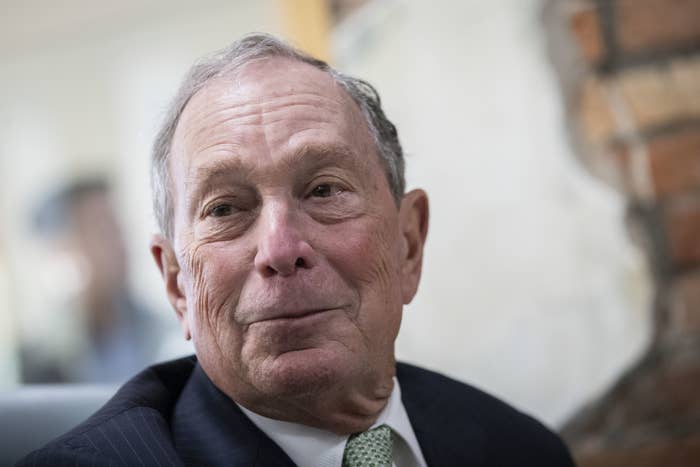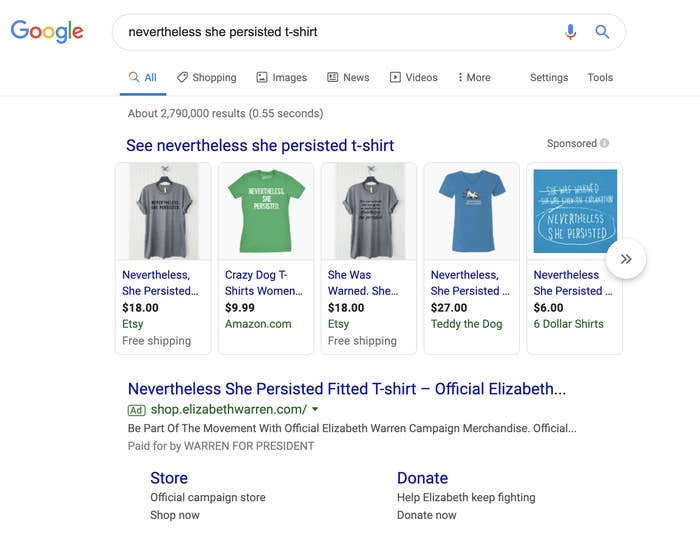
Ex–New York City mayor Michael Bloomberg began his campaign for president last week with the purchase of a decaf coffee and a slew of ads on Google searches for climate change, guns, and President Donald Trump’s tweets.
The Bloomberg campaign’s ad blitz debuted less than two weeks after Google said it would implement major restrictions for political ads in the 2020 campaign. These restrictions appear unlikely to hold the presidential campaigns back, as indicated by Bloomberg’s spending, which is running close to $1 million, according to an estimate via search analytics platform SEMrush.
“We are investing heavily in digital, an area where the Trump campaign has had a free run throughout most of the country and we are going to change that," Bloomberg campaign spokesperson Marc La Vorgna told BuzzFeed News. La Vorgna did not comment on the $1 million estimate.
Bloomberg’s campaign has run ads across thousands of different search queries, according to SEMrush, including ads that ran against search results for “Trump tweets,” “Fox News Trump,” "Trump approval rating,” “impeachment,” “climate crisis,” and “gun control.”
A Google spokesperson said that while the company’s new policies don’t go into effect until January, Bloomberg’s ads are already in compliance.
The former mayor of New York isn’t the only candidate advertising on Google. The Trump campaign is also an active advertiser on the platform. Campaigns sending traffic to donaldjtrump.com spent more than $3 million over the past month, according to SEMrush estimates (which are imprecise). Massachusetts Sen. Elizabeth Warren, despite calling for Google’s breakup, is also an advertiser on the search giant, although not a big one; her campaign has spent in the range of $10,000 to $20,000 for ads on search terms like “Elizabeth Warren” and “Nevertheless she persisted T-shirt.”

For Google advertisers, context — what people are typing in the search bar — is much more important than online behavior. If someone searches “where to buy a Kia Optima,” for instance, that’s a more significant indicator that they want to buy a Kia Optima than if a third-party data broker found they were making $70,000 a year and had visited a car website within the past month. That’s just as true of politics as it is the automotive industry.
“The restrictions make it much harder to target based on behavior and psychographics,” Aaron Levy, a group director at Tinuiti, a digital marketing firm, told BuzzFeed News. “But they don't restrict what you can do on a normal basis.”
Levy wouldn’t go as far as to label Google’s political restrictions as meaningless. But the core of the company’s allure to political campaigns remains.
In November, Google and Twitter tightened their rules around political advertising, setting Facebook apart for now. But a Facebook spokesperson told BuzzFeed News last month, “Nothing is off the table.”
